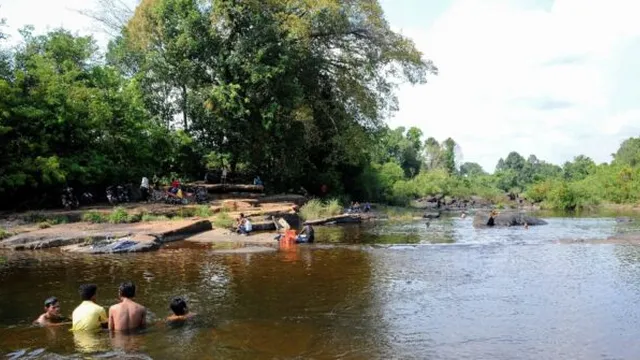
Cambodia carbon credit project reinstated after rights abuse review
2024-09-11 12:34- The Southern Cardamom REDD+ project in Cambodia was reinstated after a year-long review following allegations of human rights abuses.
- The project faced criticism for forced evictions and harassment of local residents, with claims of crop destruction and inadequate consultation.
- Despite reinstatement, local community representatives remain concerned about restricted access to land and ongoing conflicts with project enforcement.
Express your sentiment!
Insights
A carbon credit scheme in Cambodia, specifically the Southern Cardamom REDD+ project, was reinstated after being suspended for over a year due to allegations of human rights abuses. The project, which spans over 450,000 hectares, faced scrutiny following a Human Rights Watch report that detailed forced evictions and harassment of local residents by rangers and officials from the overseeing Wildlife Alliance group. These actions included the destruction of crops and homes, raising concerns about the project's impact on local communities. In response to the allegations, Verra, the leading certifier of carbon credits, stated that the Wildlife Alliance had implemented sufficient measures to address the issues raised. These measures included enhancing human rights policies, improving consultation processes with locals, and revising the complaints mechanism. However, critics, including HRW's lead author, argued that Verra's review lacked depth, as it did not involve interviews with victims and merely echoed the Wildlife Alliance's claims of compliance. The project is situated in the Cardamom Mountains, a vital rainforest habitat that is home to numerous threatened species and is earmarked for the reintroduction of tigers. Despite the reinstatement, local community representatives expressed ongoing concerns about the carbon scheme, citing fears of restricted access to their traditional lands and continued detentions for farming activities. The situation highlights the broader challenges faced by carbon credit projects in Cambodia, where deforestation rates are among the highest globally. While these projects aim to compensate local communities for forest protection, they often lead to conflicts over land rights and access, raising questions about their effectiveness and ethical implications.
Contexts
In August 2023, nearly 100 protesters were arrested in Phnom Penh, Cambodia, opposing a regional development agreement with Laos and Vietnam. Prime Minister Hun Manet defended these arrests, claiming the protesters aimed to overthrow the government, while human rights groups criticized the actions as arbitrary and a violation of rights. The political climate in Cambodia has been increasingly tense, as evidenced by the recent conviction of the opposition leader for defamation, resulting in a $1.5 million damages order. This reflects the government's harsh stance against dissent and raises concerns about the ability of opposition parties to operate freely. Additionally, Cambodia is experiencing significant infrastructure developments, including the construction of a $1.7 billion China-funded canal linking the Mekong River to the sea. This project has raised environmental concerns and strained relations with Vietnam, highlighting the complexities of Cambodia's diplomatic and economic ties with China. The backdrop of these events includes a broader context of human rights abuses and the suppression of civil liberties, as seen in the imprisonment of environmental activists and the government's crackdown on dissenting voices. These developments underscore the challenges facing Cambodia as it navigates its political landscape and international relations.